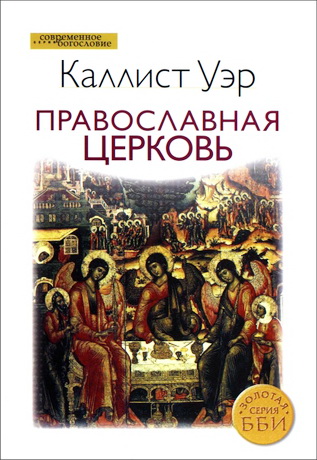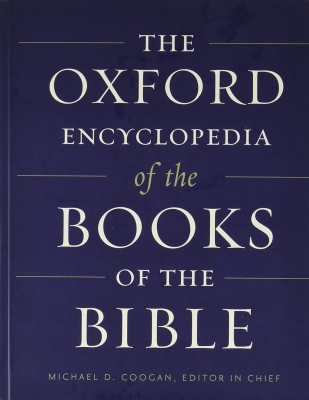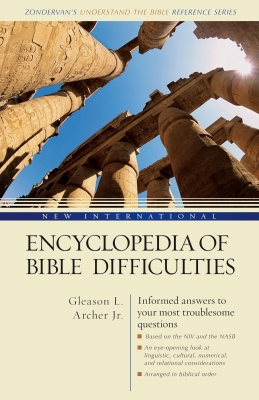
Murray - Principles of Conduct - модуль BibleQuote
The word 'ethics' is derived from the Greekεθο$orήθος.1It means custom or usage and sometimes custom or practice as prescribed by law. The one instance in the New Testament which exemplifies more closely than any other the idea to which it has been applied in Christian usage is I Corinthians 15: 33: 'evil associations corrupt good manners'(ήθη χρηστά).'Good manners' obviously designate the manner of life and conduct which is in agreement with the Christian faith and profession. In terms of this concept ethics would refer to the manner of life, to the pattern of conduct, or, in a word, to conduct.
The term which more frequently expresses this concept in the New Testament is not that from which our word 'ethics' is derived, but another, namely,αναστροφή,a word which more aptly lends itself to express the thought of 'way of life' or 'way of conduct'. Andαναστροφή,that is to say 'manner of life', which is in agreement with and is expressive of the Christian faith isαναστροφήwhich isκαλήorάγνήorάγαθήorάγια(James 3: 13; I Peter 3: 2, 16; II Peter 3: n).2 This is to say that the manner of life which the Christian faith demands and produces is one of goodness, purity, and holiness.3
When we use the word 'ethics' to designate a way of life we are not necessarily using the expression 'way of life' in an appreciative sense. It may be used depreciatively. Hence, when we wish to evaluate a way of life, we are required to qualify it in some way as good or bad, as Christian or un-Christian. The New Testament, however, has a distinctly appreciative use of the expression 'the way'. The Christian confession and manner of life are characterized as 'the way' or 'that way' (Acts 9: 2; 19: 9, 23; 22: 4; 24: 22). We can hardly dissociate this absolute use of the word 'way' from the word of our Lord, 'I am the way, the truth, and the life' (John 14: 6), even though it is difficult to define the line of connection. In any case this nomenclature does evince the total distinctiveness of the faith, worship, and life of the disciples of Christ. And this distinctiveness found its focal point in faith and devotion directed to him who declared himself to be 'the way' as well as the truth and the life. The New Testament does not have a constricted conception of what it calls 'the way'; it does not confine 'the way' to what we so frequently have in view when we speak of the way of life.4 This specialized use of the expression 'the way' comprehends all that is distinctive of the Christian faith as 'the way of righteousness' (Matthew 21: 32; II Peter 2: 21), 'the way of salvation (Acts 16: 17), 'the way of God' (Matthew 22: 16; Acts 18: 26), 'the way of the Lord' (Acts 18: 25), 'the right ways of the Lord' (Acts 13: 10), 'the way of truth' (II Peter 2:2), and 'the way of peace' (Luke 1: 79; Romans 3: 17). The way of life after the mode of New Testament usage would comprise far more than falls within the sphere of ethics. Hence, if we use the expression in its more restricted sense as the synonym of ethics, it is not because we are forgetful of the richness and fulness of the New Testament concept of 'the way' as the way of all that belongs to eternal life.
If ethics is concerned with manner of life and behaviour, biblical ethics is concerned with the manner of life and behaviour which the Bible requires and which the faith of the Bible produces. When we say 'manner of life' or 'behaviour' we must also take into account the correlative considerations.
1. While we may use the word 'conduct' or 'behaviour' to denote the sum-total of actions which constitute the pattern of life, yet behind all overt action is the dispositional character or complex which is the psychological determinant of action. Hence ethics must take into account the dispositional complex of which the overt act is the expression. This is to say, biblical ethics has paramount concern with the heart out of which are the issues of life.
2. The conduct that is in view in ethics, even when conduct is considered in terms of overt action, is not simply the aggregate of actions. Ethics views actions in their organic relations to one another. There is a certain unity and coherence of pattern; each action stands related to the others and cannot be understood or assessed except in that relationship.
3. The behaviour with which biblical ethics is concerned is not simply the behaviour of individuals; the principle of society bears intimately upon all ethical studies and it bears also upon biblical ethics. Hence the biblical ethic takes account, not only of individuals as individuals and of their behaviour as such, but of individuals in their corporate relationships. There is corporate responsibility and there is corporate action.
4. The behaviour in which we are interested when we seek to determine the biblical ethic is not the sum-total of the behaviour of a particular believer, not even of a peculiarly exemplary believer, nor the sum-total of the behaviour of believing society. We have to reckon with the imperfection of every saint in this world and with the imperfection that attaches to the most highly developed Christian society. There is still sin, oftentimes grievous sin; and therefore we fmd inconsistency and contradiction in the holiest of men and in the most sanctified society. The sum-total of behaviour cannot show the unity and coherence which the biblical ethic would require—there is no perfect pattern of behaviour exemplified in the individual believer or in the organism of believers.
The study of biblical ethics, therefore, is not that of surveying empirically the sum-total of the behaviour of those who are portrayed for us in the Bible as believers. What such a study would furnish is simply a description of the behaviour of believers. And since there is so much sin and inconsistency in the behaviour of believers at their best, whether they are viewed individually or in their corporate relations, we could not by any such empirical method delineate the biblical ethic. The biblical ethic is that manner of life which is consonant with, and demanded by, the biblical revelation. Our attention must be focused upon divine demand, not upon human achievement, upon the revelation of God's will for man, not upon human behaviour. In the biblical ethic we are concerned with the norms, or canons, or standards of behaviour which are enunciated in the Bible for the creation, direction, and regulation of thought, life, and behaviour consonant with the will of God.
It is quite obvious that this statement of the case poses several questions. And the most basic of these is the question: Is there, in the sense defined, a biblical ethic? Is there one coherent and consistent ethic set forth in the Bible? Is there not diversity in the Bible, and diversity of a kind that embraces antithetical elements? Are there not in the Bible canons of conduct that are contrary to one another? To be specific: Is there not an antithesis between the canons of conduct sanctioned and approved of God in the Old Testament and those sanctioned and approved of God in the New in respect of certain central features of human behaviour? It is a patent fact that the behaviour of the most illustrious of Old Testament believers was characterized by practices which are clearly contradictory of the elementary demands of the New Testament ethic. Monogamy is surely a principle of the Christian ethic. Old Testament saints practised polygamy. In like manner, under the Old Testament divorce was practised on grounds which could not be tolerated in terms of the explicit provisions of the New Testament revelation. And polygamy and divorce were practised without overt disapprobation in terms of the canons of behaviour which were recognized as regulative in the Old Testament period.
John Murray - Principles of Conduct - Aspects of Biblical Ethics
Grand Rapids, MI: Wm. B. Eerdmans Publishing Co., 1964. – 272 p.
ISBN 978-0802811448
John Murray - Principles of Conduct – Contents
Preface
- I Introductory Questions
- II Creation Ordinances
- III The Marriage Ordinance and Procreation
- IV The Ordinance of Labour
- V The Sanctity of Life
- VI The Sanctity of Truth
- VII Our Lord's Teaching
- VIII Law and Grace
- IX The Dynamic of the Biblical Ethic
- X The Fear of God
Appendices
- a The Sons of God and the Daughters of Men(Genesis 6: 1-4)
- b Additional note on Leviticus 18: 16, 18
- c Additional note on 1 Corinthians 5:1
- d The Presbyterian Church in the U.S.A. and Slavery
- e Antinomianism





Комментарии
Пока нет комментариев. Будьте первым!